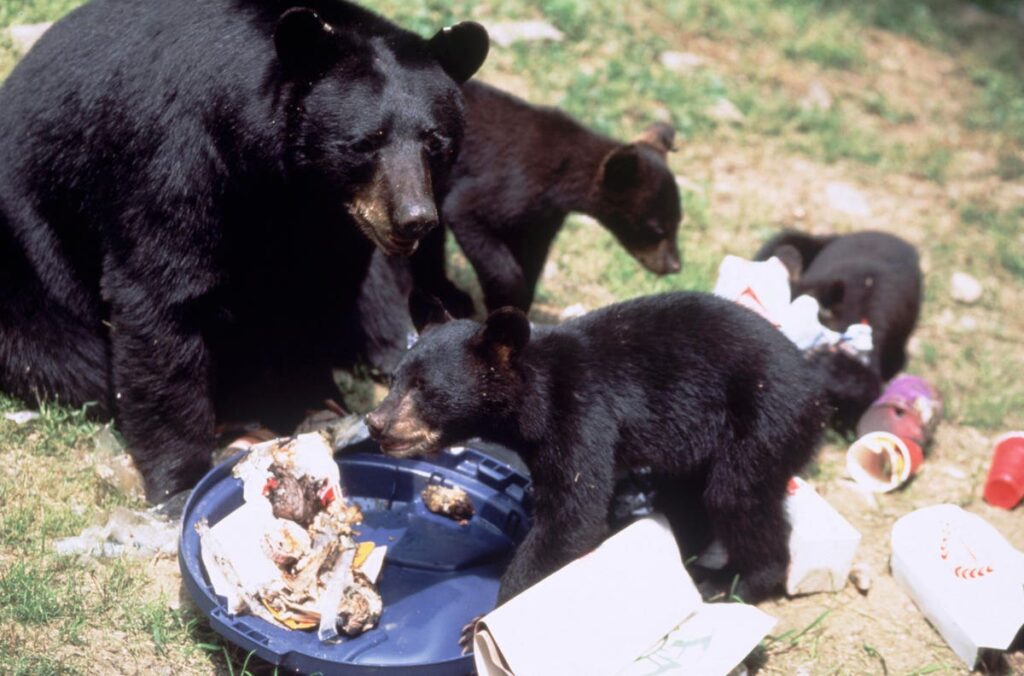Black bears might scavenge for food at campsites.
In the Blue Ridge Mountains, black bears are a common sight. This year, park rangers are concerned by the uncharacteristic aggressive behavior of some bears in Western North Carolina. These hungry bears have caused chaos and even injuries then they’ve encountered humans.
Bears typically steer clear of campsites … unless they are lured in with food. While bears are mighty predators, they are also omnivores. Mother bears seeking food for their cubs could smell provisions that a hiker has brought into the forest. That bear might be tempted to rip apart the campsite or ransack a backpack to scavenge for a meal.
In the Pisgah National Forest, “a mother bear and her cubs were stealing people’s backpacks and bear canisters to access food,” reports USA Today.
These encounters are frightening and dangerous for the humans and bears involved. A stand-off between a territorial black bear can quickly turn deadly if the bear feels threatened. Great Smoky Mountains National Park is located several hours from the Pisgah National Forest. On May 9th, the park closed the Cosby Knob Shelter after a bear “showed no fear of humans and bit a hiker.”
On May 11th, the U.S. Forest Service temporarily banned camping in a section of the Appalachian Trail. The closure impacts around 20 miles of trails from Tanyard Gap to Little Laurel Shelter and Little Laurel Shelter to Deep Gap. “While backpackers are still permitted to hike through the area, all campsites and shelters are off limits, to include the area surrounding Rich Mountain Fire Tower,” the U.S. Forest Service announced. Park rangers are not certain when the trail will reopen, but hikers who need shelter can still find refuge at one of the Appalachian Trail’s 250 backcountry shelters.
Staying Safe in the Woods
Never approach a bear. Camp or hike with others since bears are less likely to attack a group of people. Unlike brown bears or grizzly bears, black bears may not be deterred if you play dead during an attack. In the rare case of a black bear attack, be prepared to escape or fight back with bear pepper spray.
The best way to prepare for a black bear attack, though, is to avoid attracting bears to your campsite. Forestry officials worry that local bears are becoming reliant on campers and hikers for food.
You can protect yourself, other people, and bears by carefully storing your camping supplies. “Storing your food and disposing of garbage properly can mean life or death to a bear. Bears learn quickly and will return to areas where they find food. Not only can this be dangerous for people, but it is also harmful to bears,” explains the National Park Service. Bears could become sick if they mistake soap, camping gear, or trash for a snack. The National Park Service encourages hikers and campers to consider these tips before venturing into the woods:
- Keep your food within reach.
- Do not leave food unattended.
- Put food, wrappers, and crumbs in airtight containers.
- Check with park rangers or campsite directors to see if the facility provides food lockers or locking trash cans.
- Do not store food in your backpack or your tent.
If you want to learn more about trail closures and safety procedures, consult the Appalachian Trail Conservancy, the U.S. Park Service, and the state or national park you plan to visit.


